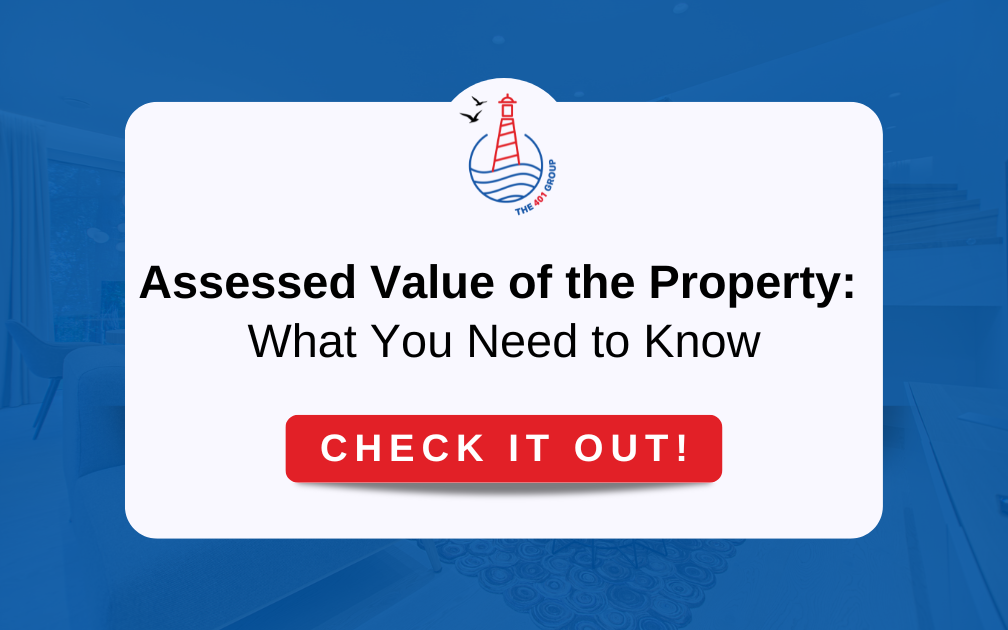If you are considering selling your home or buying a new one, you may have questions about the property’s assessed value. Does this value affect a property’s asking price? Is it the same as the market value? Don’t worry – we will cover all this and more below!
What Is An Assessed Value of the Property?
Local municipalities, usually counties, evaluate real estate properties periodically and assign them a dollar amount (“assessed value”). The tax assessor then uses this value to determine the property taxes owed. So, in short, the assessed value is nothing more than a figure used to collect the appropriate amount of taxes.
Here are a few things that assessors look at when considering a home’s value:
- Overall condition and quality of the property
- Other local property values
- The home’s features
- Recent improvements
- Square footage
- Market conditions
What’s the Difference between Assessed, Market, and Appraised Value?
Home buyers and sellers often need clarification on these three terms. Many people think assessed, appraised, and market value is the same. However, these three real estate phrases have different meanings.
First, let’s discuss the difference between assessed value and market value. As mentioned, the assessed value is an amount assigned to collect property taxes. However, market value is something entirely different.
In the simplest terms, a property’s market value is the amount a buyer is willing to pay for a property. Let’s explore an example: Suppose you want to sell your home for $400,000, but a buyer offers you $325,000. You don’t accept this amount, but you and the buyer continue negotiating the sale. You finally agree on the sales price of $365,000. The market value of your home is now $365,000 because this is what the buyer paid.
Before this real estate transaction is complete, the home’s market value is still an estimate. This value is often predicted by comparative market analyses or online valuation tools but is not set in stone until a buyer pays a specific amount.
Knowledgeable real estate agents like those at The 401 Group are trained to accurately estimate a home’s market value by looking at its exterior and interior features, reviewing comps, evaluating supply and demand, and assessing its location.
Now, let’s check out the third term: appraised value. A licensed home appraiser establishes a property’s appraised value. While these values can be used to estimate market value, they are, as we mentioned, not the same. A homeowner can hire an appraiser anytime to establish an appraisal value, but appraisals are typically completed to secure a mortgage. A home’s appraisal value is the amount that an appraiser thinks a home is worth based on a thorough evaluation of the home and recently sold homes that are comparable to it.
To reiterate: These three real estate terms have different meanings, and a home’s assessed, market, and appraised values could be three separate figures.
How Is An Assessed Value of the Property Determined?
A government assessor usually determines a property’s assessed value. Each municipality may have different procedures for establishing a property’s assessed value. Judgments are often made by considering computerized real estate data, but depending on the district, assessors may visit homes to evaluate them physically.
Homeowners should not be alarmed if an assessed value is lower than anticipated. Many are happy because this means their tax bill will be lower. However, if the figure is much higher than expected and the homeowner disagrees with the assessed value, they can dispute it and request a reassessment.
Fair market value can affect the assessed value of the property. In most municipalities, the assessed value is computed at 80-100% of the property’s fair market value (or an estimate of what the property could bring if sold). If you want to know your home’s assessed value, contact your local municipality or check their website.
How Is the Assessed Value Used to Calculate Property Taxes Owed?
Homeowners can use their property’s assessed value and their area’s mill rate (or tax rate) to calculate the amount they should owe in property taxes.
Rhode Island’s property tax rates vary amongst municipalities, ranging from $7.08 per $1,000 in New Shoreham to $24.51 per $1,000 in West Greenwich.
Using New Shoreham, RI, as an example, here is how property taxes are calculated using the assessed value and tax rate.
Your New Shoreham residential real estate tax rate is 7.08, meaning you will pay $7.08 for every $1,000 of assessed property value. Let’s assume your home has an assessed value of $300,000. Using New Shoreham’s tax rate, your property tax bill would calculate the following way:
$7.08 ÷ $1,000 = 0.00708
⬇
0.00708 x $300,000 = $2,124
So, you would pay $2,124 annually in property taxes in New Shoreham, RI.
Conclusion
We hope this information about a property’s assessed value has been helpful. If you still have questions, we are happy to answer them.
Please don’t hesitate to call us at 401-639-3914 or message us here. We look forward to helping you reach your real estate goals!

